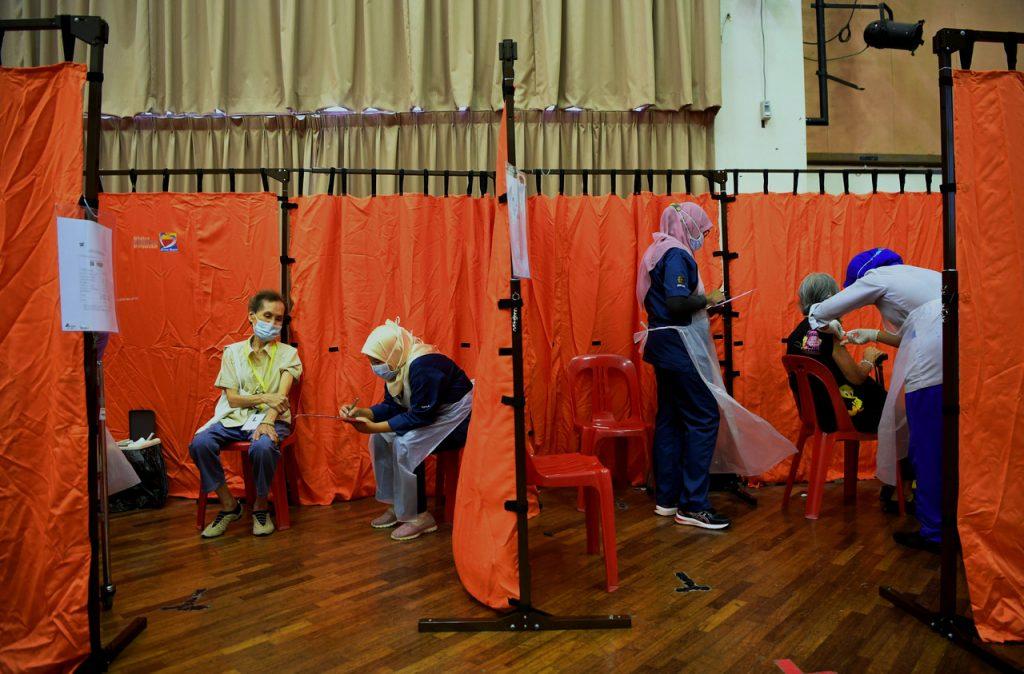Should Malaysia adopt the one-dose vaccine policy?
We need to be clear and to have realistic expectations, as vaccination will bring down positive numbers but will not cause cases to drop to zero.
Just In
Getting more Malaysians to be vaccinated against Covid-19 is a good thing. There are countries which have prioritised the rollout of the first dose of vaccine to cover as many people as possible. In Malaysia, our first-dose vaccination coverage is now more than 12% of the adult population, with slightly more than 5% of the adult population having received both doses.
In wealthier countries such as the US and UK, more than 172 million Americans and more than 40 million Britons have received their first dose of a two-shot Covid-19 vaccine.
The US has authorised vaccines from Moderna and Pfizer-BioNTech, while the UK has authorised Pfizer’s shot as well as AstraZeneca. Both countries have also authorised Johnson & Johnson’s vaccine, which is a single dose.
The data for how well the vaccines work after one dose isn’t clear-cut – it depends on what you’re measuring, and when you’re measuring it, according to Stephen Evans, a professor of medical statistics at the London School of Hygiene & Tropical Medicine.
The UK is delaying the second dose of vaccine for up to 12 weeks for most people to prioritise giving people their first shot because of a shortage of vaccines. In the US, the Centers for Disease Control and Prevention has recommended giving the second dose of Pfizer vaccine 21 days after the first, and 28 days after the first for Moderna, with an interval of up to six weeks in “unavoidable” situations.
That is why I believe Malaysia, where the majority of its vaccine portfolio is made up of Pfizer shots, may not be able to fully pursue a first-dose policy.
The runway between the first and second dose of Pfizer shots is short, and given the less-than-smooth vaccine supply, this is a challenge in pursuing a one-dose policy. What will happen if you prioritise the first dose and we don’t have sufficient supply to cover the second dose within the 21-day window? (To be fair, Pfizer has issued an advisory that the gap between the two doses can be extended to 12 weeks.)
While the current model may not lead to a lower infectivity rate, compared with the single-dose policy, it will lead to lower death rates. A successful vaccination policy should be measured against death and hospitalisation rates – not just infection numbers.
Apart from that, the recent rise in positive cases in the UK in the past week despite more than 50% of its population having received their first dose, suggests that one dose is not sufficient against the new Covid-19 virus variants, which are said to be more aggressive and deadly.
So we need to be clear and have realistic expectations. Vaccination will bring positive numbers down but it will not cause positive cases to drop to zero.
That is not what vaccinations are for. It is the severity of the infections that we need to protect our population against. This is why I believe that the Malaysian government’s vaccination and public health strategy outlined in the recent National Recovery Plan by Prime Minister Muhyiddin Yassin is a move in the right direction.
The framework and considerations are practical, conservative and based on sound public health policy considerations which are used in other countries.
More eligible Malaysians should sign up for the vaccination drive and show up for their scheduled slots. Failure is not an option. Yes there were glitches in the earlier stages, but all in all, we have rolled out the vaccination drive earlier than targeted.
Now, we have administered more than 200,000 doses per day and the government is stepping up the drive, especially in rural areas where people are less tech-savvy and more elderly. Given this momentum, I believe the 300,000 doses per day target set by the government is definitely within reach by July. More and more people, especially in the high-risk groups, are starting to get their appointments and this will only improve in the near future.
Get vaccinated and get moving for us to exit this pandemic successfully by year-end!
The views expressed in this article are those of the author(s) and do not necessarily reflect the position of MalaysiaNow.
Subscribe to our newsletter
To be updated with all the latest news and analyses daily.
